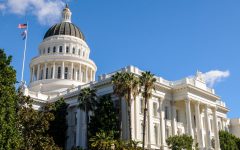
Legal System. (Photo: Billion Photos/Shutterstock)
Recent Legal Battle Latest in War to Protect the American Worker
Not only did the employees not consent to deductions, but the unions are alleged to have forged the employees’ signatures on authorization forms
By Timothy Snowball, December 5, 2023 3:00 am
Government labor unions will stop at nothing in their war to undermine the U.S. Supreme Court and diminish the protections afforded public employees by the First Amendment. From the highest echelons of the judiciary to payroll departments across the land, battles wage.
The opening volleys occurred in 2018, when the Supreme Court affirmed in Janus v. AFSCME that all public employees have a First Amendment right to refuse to support unions’ political speech through the contribution of union dues, fees, or any other financial contribution.
In addition, employees must consent to such deduction by knowingly and voluntarily waiving their right to refuse.
But the unions were not going to give up their stranglehold on public employees’ paychecks without a fight. Case in point, Wendy Baker.
Baker was a member of the California School Employees Association (CSEA) whose membership agreement allowed her to leave the union and cease dues deductions for the union’s extreme political speech at any time. In 2022, she attempted to exercise this right.
She was informed, however, that while her membership could be terminated immediately, her dues could only be stopped if she filed another request during her union-designated annual opt-out window, which wasn’t scheduled to open again until February 2023.
To justify its actions, the union claimed Baker had signed a subsequent dues-authorization form in 2020 that included the opt-out window provision. But when she asked to see the document, the union refused.
After being forced to hire an attorney, Baker was finally able to negotiate a settlement with CSEA in July 2022. Under its terms, her dues deductions would stop immediately, and she would be reimbursed for the dues that had been deducted from her pay since April.
The union also acknowledged for the first time that Baker had not been considered a member since April 2022, which was news to Baker.
CSEA also enclosed a copy of the dues authorization she had allegedly signed two years earlier. The document had an e-signature rather than a “wet signature,” and Baker denies ever having approved it.
Meanwhile, her August 2022 paychecks were, in fact, dues-free. But by September, the dues deductions had been resumed.
When Baker noticed the renewed deductions, she immediately notified the school district’s personnel department, but when its personnel refused to help her, the Freedom Foundation filed a lawsuit on her behalf with the U.S. District Court in Sacramento.
Not only is the union abridging Baker’s Constitutional rights, since the nonconsensual dues are still being deducted, but its violation of the settlement agreement amounts to breach of contract.
Baker’s struggle is just the latest in the larger war to protect the American worker.
At the 9th Circuit Court of Appeals, for example, nine employees, all of whom were compelled to support the extreme political speech of government unions against their will, have all filed petitions for “en banc” review from the entire court, rather than a three-judge panel who shot down their claims without any real analysis.
In some of the previous decisions being appealed, the panel denied the claims based on non-existent authorization cards the unions did not possess, and the employees never signed.
Confused? So are the employees, and the rest of the American public.
Which explains why the issues have been elevated all the way up to the U.S. Supreme Court. The high court is currently considering two petitions that could change the game when it comes to enforcing the Janus case.
The first was filed by the State of Alaska, which had taken proactive steps after the Janus ruling to comply with its requirements that an employee’s waiver of their First Amendment rights were knowing, intelligent and voluntary. Unsurprisingly, the unions took issue with this attempted compliance and have been fighting Alaska tooth and nail to prevent these new policies.
The second was filed by five employees, all of whom suffered injuries to their First Amendment rights because of the absence of protective policies like the ones Alaska is trying to put in place. In each of these cases, not only did the employees not consent to deductions but the unions are alleged to have forged the employees’ signatures on authorization forms.
Again, the courts below claim to be powerless to prevent such behavior, despite the clear mandate provided by the Supreme Court in Janus.
But for employees like Wendy Baker, the fight is far from over.
According to Alexander Hamilton at the time of the founding, “(T)he courts of justice are to be considered as the bulwarks of a limited Constitution.”
Unless and until the courts resume this vital role in our republic, unions and other cartels will continue to flout our most cherished legal protections.
- Palm Springs union admits unconstitutional conduct in settlement - March 25, 2024
- Recent Legal Battle Latest in War to Protect the American Worker - December 5, 2023
- Lawsuit Challenges Public Access to LAUSD Employee Orientations - May 8, 2023




